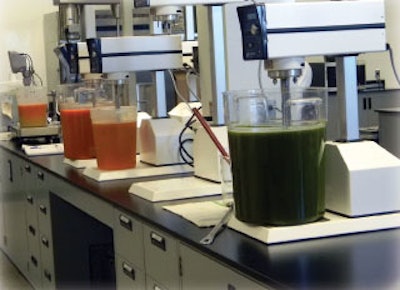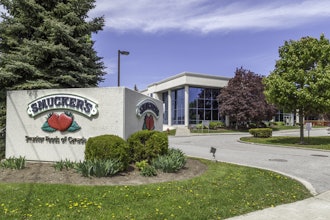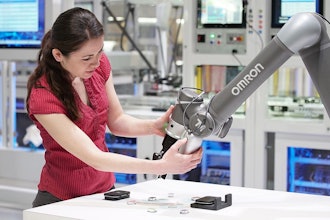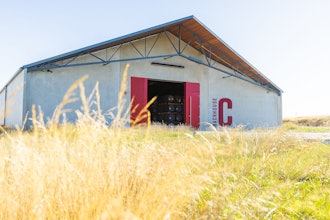
This article first appeared in the July/August 2013 issue of Food Manufacturing.
Known for its flavorful salad dressings, beverages and carrot snacks, Bolthouse Farms is dedicated to developing fresh, nutritious products at its new Innovation Center in Bakersfield, Calif.
Bolthouse Farms began in 1915 as a family-owned, commercial vegetable farming operation in western Michigan, supplying carrots to Midwest processors such as Gerber, Campbell’s and Heinz. When William Bolthouse built a fresh carrot cellophane packing facility in 1959, the company marketed the first bagged carrots, called “cellos,” to retailers.
| New product flavors are being developed at the Bolthouse Farms Innovation Center. |
Throughout the next half of the 20th century, Bolthouse expanded its carrot processing operations, selling ready-to-eat cut-and-peeled carrots, as well as carrot juice concentrate. In 2002, the company began using organic carrot farming methods, and the next year, Bolthouse built a state-of-the-art bottling facility in Bakersfield, Calif., to package its premium juices and smoothies, which now serves as the company’s only manufacturing plant.
Bolthouse was built on — and still maintains a strong focus — on its carrot products, but the company has greatly expanded its product offerings over the years. In addition to its carrot juice, the company now produces a variety of vegetable and fruit juices, including pomegranate, mango lemonade, an orange-carrot blend and more. A line of smoothies and protein drinks in flavors such as berry, coffee and chocolate also has been developed.
The company began manufacturing its yogurt-based refrigerated salad dressings in 2007. The yogurt base is designed to lower the calorie content of the dressings while preserving a high quality, creamy taste. For example, Bolthouse’s Creamy Ranch dressing has 45 calories in a two-tablespoon serving. More recently, the company has begun producing vinaigrette dressings, also designed to keep calorie counts down.
Expanding Innovation Efforts
In January 2013, Bolthouse Farms unveiled its Innovation Center, which is connected to the Bakersfield facility. The center is designed to help the company accelerate its research and development efforts, as well as enhance its current product offerings.
“Our investment in consumer research and new innovations in food science will enable us to attract additional world-class talent to increase consumers’ access to high quality, nutritious and affordable products,” says Jeff Dunn, CEO of Bolthouse Farms.
The $5 million, 17,900 square-foot addition houses test kitchens as well as a sensory center, which allows product developers to use the latest technologies.
Todd Putman, chief marketing officer for Bolthouse Farms, says that the inspiration for adding the Innovation Center onto the Bakersfield production facility stemmed from both function and the way in which their employees work. He says the co-location of the center and plant provides a “highly functional, collaborative environment,” which is conducive to Bolthouse’s innovation efforts.
| An employee works with a carrot recipe in the Bolthouse Farms Innovation Center's test kitchen. |
The company currently operates on what Putman calls an innovation cycle, and he says the addition of the Innovation Center will help increase that cycle at a more rapid pace. “We are committed to increasing our innovation cycle,” he says. “Today in beverage, we [innovate] two times a year. In the future, you’ll see us increase that at least by a third.”
The collaboration of the Innovation Center and Bakersfield plant also allows Bolthouse to successfully use a combination of technology and food science to achieve the company’s goal of creating fresh products without compromising safety. The processing facility utilizes HPP technology in the production of dressings and some beverages and harnesses flash pasteurization to help ensure food safety.
The flash pasteurization process quickly heats the juice and dressings to kill potentially harmful microorganisms, and then cools the product, all in a matter of seconds. “This form of pasteurizing our juice allows us to provide a safe product, without losing the wonderful taste of the juice,” Putman says.
Working with Campbell Soup
In 2012, Bolthouse Farms was purchased by Campbell Soup Co. for $1.55 billion, opening the door for Bolthouse to grow as a company. “[Campbell] has a lot of resources, a lot of back-of-house technology that are really going to help [Bolthouse] jump from a small-sized company to a medium-sized company,” Putman says.
Since the acquisition, Bolthouse has operated as a separate business unit, with members of Bolthouse Farms’ management team still leading the Bolthouse portion of the business.
The Campbell acquisition appears to be a win for both companies, as Bolthouse’s juice line will complement Campbell’s V8 beverage business. And Bolthouse’s carrots business will help Campbell expand its healthy snack line as the company seeks to adjust to consumers’ growing preference for nutritious foods and beverages.
Putman says Campbell has a long history in the vegetable business that is a good fit for Bolthouse. “[Campbell values] farming, they value vegetable nutrition. All of these things really have been a help to us.”
Looking to the Future of Flavor
Putman isn’t shy about Bolthouse’s all-out focus on flavor. “For us, it’s less about technology and more about patents and sophistication we have relative to flavorings, seasoning and recipe types.”
Bolthouse is constantly on the lookout for the latest flavor trends for its products, experimenting with everything from goji berry and pomegranate to cucumber and spinach. “Any flavor or any fruit — as well as vegetables — you hear about it in the world, I guarantee you we’re working on it,” Putman says.
Bolthouse Farms’ product development team is working to introduce produce in more forms, with different packaging types and for various nutrition functions. One example of Bolthouse’s produce innovation efforts is the release of Baby Carrot Shakedowns. Available in chili lime and ranch flavors, the carrot snack is packaged in a bag that keeps the baby carrots at the bottom and a pocket of seasoning on top. Consumers pop the seasoning pocket, and the flavoring is released onto the carrots for a freshly seasoned treat.
“I think [Baby Carrot Shakedowns] are the best manifestation of where [Bolthouse] is heading. We’re taking junk-food ideas and tactics and turning those into healthier versions,” Putman says.
Using “junk-food ideas” and turning them on their heads into nutritious, appetizing snacks is all a part of Bolthouse Farms’ core mission to “change the way people think about and use fresh fruits and veggies.” Through its continuous product innovation efforts, Bolthouse seeks to help consumers make better food choices.
Putman says Bolthouse will continue to think outside the box when it comes to utilizing fresh produce in its products. “I think broadly you will see us bringing our innovative thinking about fruits and vegetables into new categories and new platforms. We fundamentally believe that there is too much processed food in America, and we need to move towards a healthier orientation. And I think we can do that with produce.”
With its drive to provide the freshest, healthiest products available, Bolthouse Farms is sure to continue developing some of the most unique and innovative products seen in the produce aisle.























